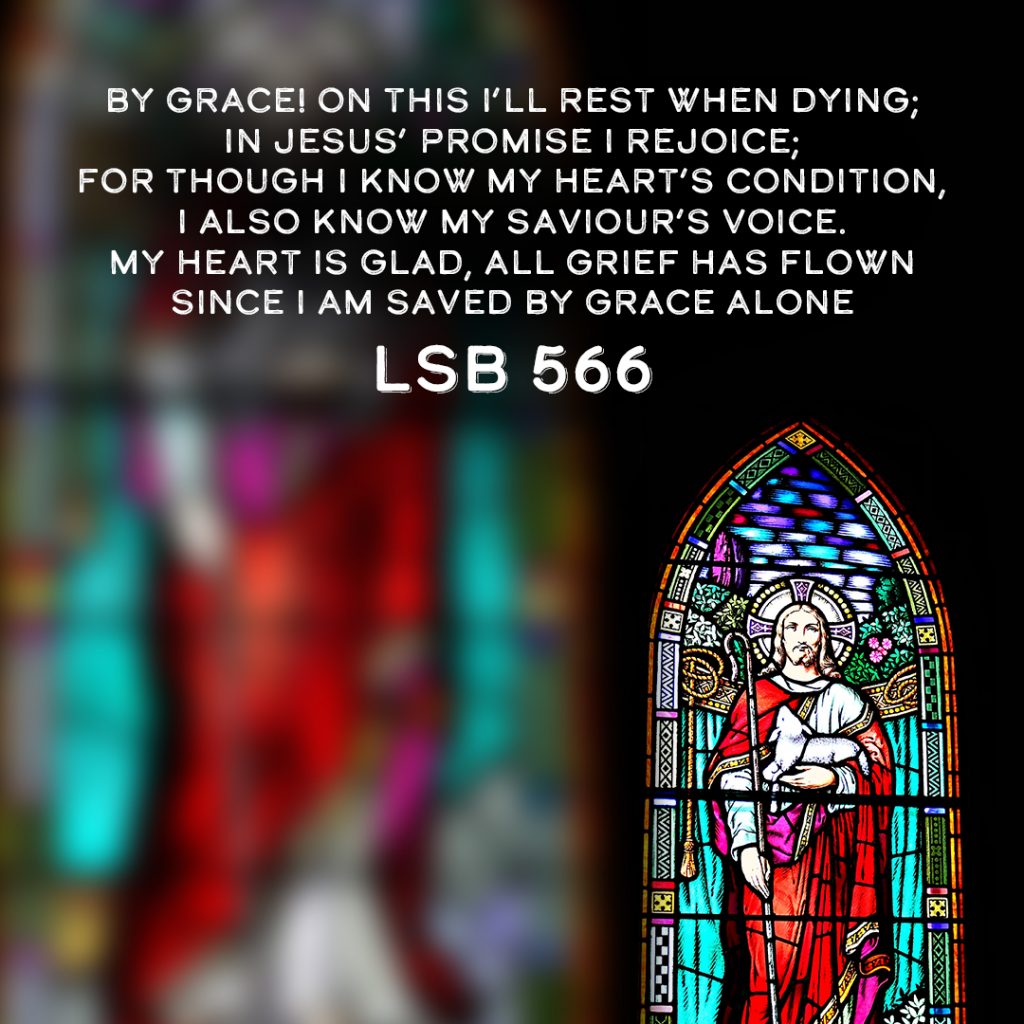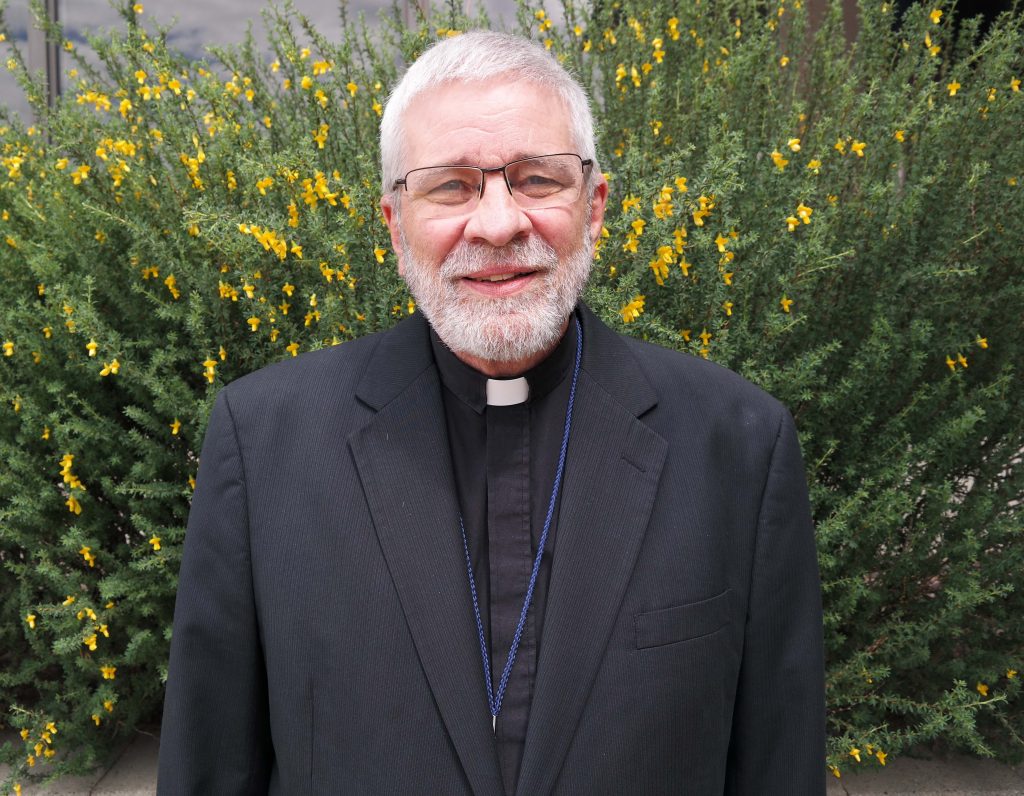We Value Grace
 by Timothy Teuscher
by Timothy Teuscher
At this past June’s synod convention, information on the proposed Strategic Framework for Lutheran Church–Canada was presented, which includes a number of value statements that inform and direct who we are and undergird what we strive to do in our walk together as a synod. Last issue we discussed the value of Truth. This issue we’re looking at Grace.
Now, this word ‘grace’ is a word that we hear often in the church—in sermons, in the liturgy, and in our hymns. Perhaps, however, we have heard this word so often that it simply goes in one ear and right out the other. Consider, therefore, a few tidbits from the Scriptures about ‘grace.’
The grace of God is His favourable disposition toward us sinners. “But God, being rich in mercy, because of the great love with which He loved us, even when we were dead in our trespasses, made us alive together with Christ—by grace you have been saved” (Ephesians 2:4-5).
God’s grace is not only made known to us through Scripture, but is further offered, given, and imparted to us personally in and through the means of grace: the Holy Word, Holy Baptism, and the Holy Supper.
God’s grace prompts Him to save sinful people who cannot be saved in any other way. “For there is no distinction: for all have sinned and fall short of the glory of God, and are justified by His grace as a gift, through the redemption that is in Christ Jesus” (Romans 3:22-24).
God’s grace declares sinners righteous and saves them without the Law; that is, without good works on our part. “For by grace you have been saved through faith. And this is not your own doing; it is the gift of God, not a result of works, so that no one may boast” (Ephesians 2:8-9).

God’s grace is grace for the sake of Christ and His work. “God saved us and called us to a holy calling, not because of our works but because of His own purpose and grace, which He gave us in Christ Jesus” (2 Timothy 1:9).
God’s grace is universal and thus meant for everyone. “For the grace of God has appeared, bringing salvation for all people” (Titus 2:11).
God’s grace is not only made known to us through Scripture, but is further offered, given, and imparted to us personally in and through the means of grace: the Holy Word, Holy Baptism, and the Holy Supper. “I commend you to God and to the Word of His grace, which is able to build you up and to give you the inheritance among all those who are sanctified” (Acts 20:32). “When the goodness and loving kindness of God our Saviour appeared, He saved us, not because of works done by us in righteousness, but according to His own mercy, by the washing of regeneration and renewal of the Holy Spirit, whom He poured out on us richly through Jesus Christ our Saviour, so that being justified by His grace we might become heirs according to the hope of eternal life” (Titus 3:4-7).
The Formula of Concord in our Lutheran Confessions sums it up this way: “A poor sinful person is justified before God, that is, absolved and declared free and exempt from all his sins and from the sentence of well-deserved condemnation, and is adopted into sonship and inheritance of eternal life, without any merit or worth of his own. This happens without any preceding, present, or subsequent works, out of pure grace, because of the sole merit, complete obedience, bitter suffering, death, and resurrection of our Lord Christ alone” (FC SD III:9).
When we consider what the Bible says about grace, it is indeed good, right, and proper to proclaim that “we value Grace as the free and undeserved gift of God through Christ Jesus which empowers believers to show forgiveness and mercy to others.” After all, the very heart and centre of the Christian faith, in distinction from all other religions devised by man, is nothing else than this amazing grace of God in Christ Jesus.

And so we sing in the words of the hymn: “By grace! On this I’ll rest when dying; In Jesus’ promise I rejoice; For though I know my heart’s condition, I also know my Saviour’s voice. My heart is glad, all grief has flown Since I am saved by grace alone” (LSB 566:6).
———————
Rev. Dr. Timothy Teuscher is President of Lutheran Church–Canada (LCC).
A new value statement will be discussed in forthcoming issues of The Canadian Lutheran magazine. Check out the other columns in this series:





